
2024 Will Be The World's Biggest Election Year In History...And Democracy's Biggest Test
2024 will not only be the biggest election year in the history of the world, but it will test whether our democratic guardrails will hold.
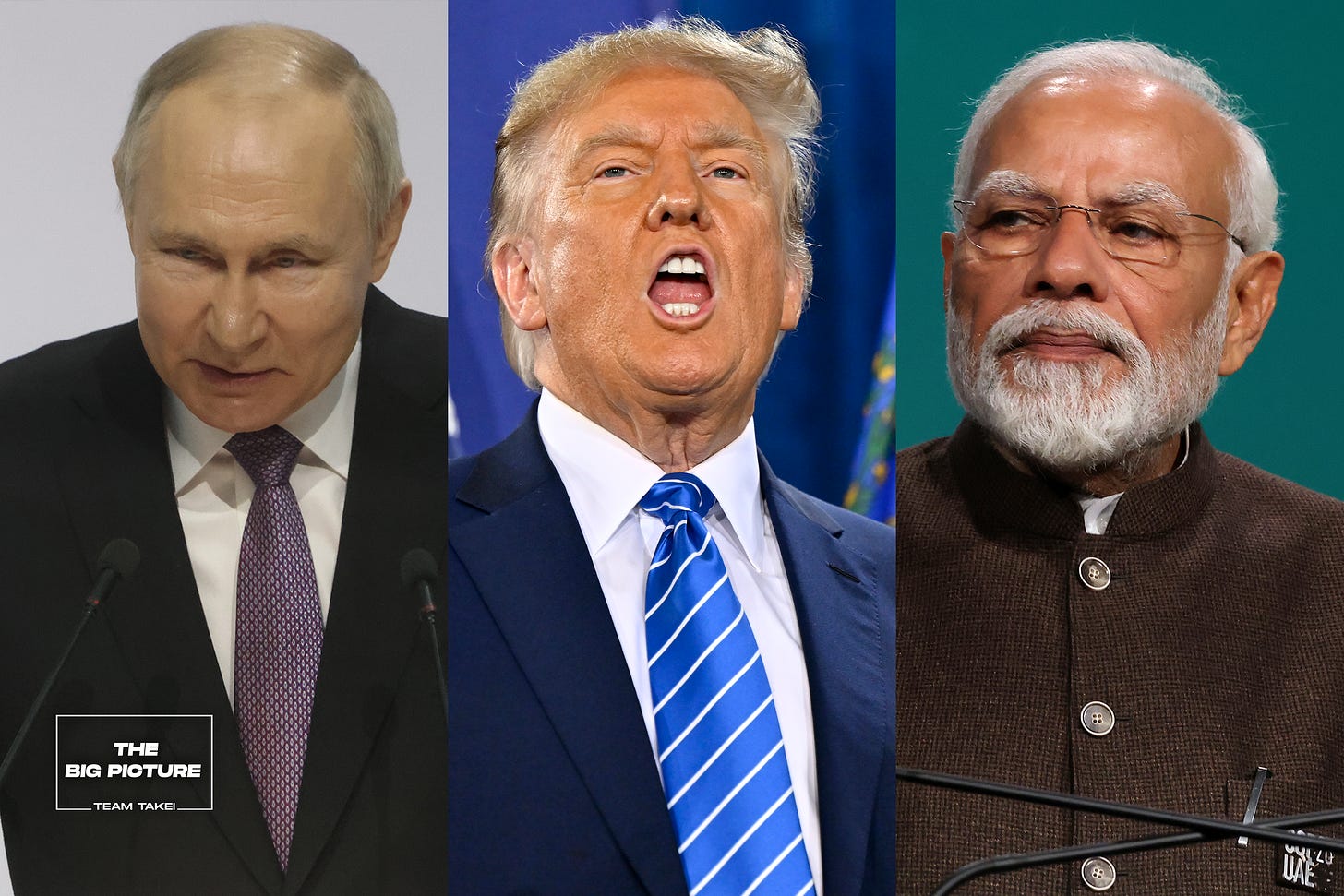
People often caution that this year’s U.S. presidential election is the most important election of our lifetimes. And indeed it’s hard to dispute that fact.
But in 2024, around the world, the election landscape is much bigger than just us. This year approximately 76 countries, whose populations add up to 4 billion, or more than half of all people on the planet, will hold elections. That includes 2 billion voting age adults (out of approximately 4 billion) who will have the opportunity to vote this year.
In other words, as The Economist puts it:
2024 is the biggest election year in history
Not all elections this year will be direct elections of heads of state, of course. For example, in Britain, the election to determine control of their House of Commons is expected to be called (which in turn will determine who controls the government); the European Union’s 27 member states will hold parliamentary elections; and countries such as Brazil and Turkey will hold nationwide municipal elections.
Likewise, not all elections are created equal. As The Economist bluntly describes it, “this great march to the ballot box does not mean an explosion of democracy.” Many countries that rank low on the Economist Intelligence Unit’s democracy index (see scale pictured below) will hold sham elections to re-install dictators. We’re looking at you, Russia.
The Economist further points out:
Eight of the ten most populous countries in the world—Bangladesh, Brazil, India, Indonesia, Mexico, Pakistan, Russia and the United States—will hold elections in 2024. In half of these, elections are neither free nor fair and many other prerequisites of democracy, such as freedom of speech and association, are absent.
Beyond our fixation on our own election this November, it’s time to expand our election watch horizons past our own borders. In this essay, I’ll explore the state of the global electoral landscape this election year and how democracy will be put to the test as authoritarianism (often in democracy’s clothing) continues its march.
A quick pledge break before we dive in! If you’ve been meaning to support our work, now’s a great time!
Democracy Waning Around The World
It’s tempting to look at Donald Trump’s strength in the polls here at home and Vladimir Putin’s pre-ordained “election” in Russia next month as signs that democracy is on life support globally. But before we declare its premature demise, it’s worth noting some areas where we’ve seen recent positive developments.
In 2022, Brazil elected former leftist leader Luiz Inácio Lula da Silva as president, ousting Trump ally Jair Bolsonaro and his far-right movement after just one divisive four-year term in office. This October’s municipal elections in Sao Paulo, the southern hemisphere’s most populous city, are widely seen as a proxy battle between the current and former leader. Democracy Index: 6.8 - Flawed Democracy
Last year, after 8 years of conservative populist rule, Poland’s pro-EU opposition, whose coalition ranged from moderate/conservative to liberal, won a majority and elected centrist Prime Minister Donald Tusk, who has vowed to “move Poland closer to European allies and revive support for Ukraine.” Democracy Index: 7.0 - Flawed Democracy
Britain, one of the few “full democracies” identified by the EIU index, looks poised to throw out its long-governing conservative Tory government this year in favor of the left-of-center Labour party, which hasn’t elected a Prime Minister since 2010 yet is currently polling 22 points ahead. Democracy Index: 8.3 - Full Democracy
And of course, right here in the United States, since Donald Trump was elected president in 2016, Democrats won back the House in 2018; won the presidency and the Senate in 2020; beat back a heralded “red wave” in 2022, ensuring the GOP’s newly won House majority is a slim one, even gaining a U.S. Senate seat; and have taken back numerous governorships and state legislatures around the country. Democracy Index: 7.9 - Flawed Democracy
All that said, 2024 is poised to become the latest step in a disturbing global anti-democratic trend, which Stanford University professor Larry Diamond has described as a “democratic recession.” As Diamond puts it, “there is a spirit of the times and it is not a democratic one.”
According to The Global State of Democracy Initiative by Sweden’s International Institute for Democracy and Electoral Assistance, “2023 marked the sixth consecutive year in which democracy declined in half of all countries.”
You can see this in the trendlines below.
This is a reversal from 20+ years ago when democracies thrived in the decade or so after the fall of the Soviet Union. In fact, according to V-Dem Institute, which “assesses democracies’ health on five principles: electoral, liberal, participatory, deliberative and egalitarian”:
“the quality of democracy enjoyed by an average global citizen in 2022 [was] back to the levels of 1986.”
Diamond describes why democracy appears to be waning:
“Populism is on the rise. The liberal democratic west is objectively weaker and less confident about its democratic values. We have really lost our resolve. There is a huge vacuum and it is filled by bad actors who bite, bite, bite at the essence of democracy and in one way or another move decisively to govern as badly as they want to.”
One of those bad actors whose election signaled a democratic recession here in the U.S. is, of course, Donald Trump. And indeed, Diamond cites the prospect of a return of Trump to power as an event “that would threaten the most damage to democracy” and “would embolden global autocracy.”
Kevin Casas-Zamora, Secretary General of the International Institute for Democracy and Electoral Assistance, cited four factors in democracy’s decline:
“the perception that democracies are slow and clumsy to respond to social demand”;
a sense of “impunity” for corruption;
“levels of social anxiety going through the roof leading to an embrace of authoritarian figures”;
and the decline in the West’s moral authority in the wake of the invasion of Iraq, the financial crisis, and the election of Donald Trump, which have weakened its advocacy for democracy.
Taking these factors together, it’s no wonder the U.S. is listed as a “flawed democracy.”
So what is the worldwide 2024 election landscape when it comes to the battle between democracy and autocracy?
Authoritarianism Rising
Below are five elections to watch this year—one of which has just occurred—to gauge the creep of autocracy and whether we can pull back from the brink and reverse course.
February 4, 2024: El Salvador - 5.1 Hybrid Regime
El Salvador’s 42-year-old president Nayib Bukeleib, who once identified himself as “the world’s coolest dictator” on his Twitter profile, cruised to a landslide victory in Sunday’s elections, with more than 80% of the vote. According to CNN, Bukeleib’s win was “widely expected in a country where Bukeleib enjoys immense popularity over a crackdown on gangs that drove down El Salvador’s once-sky-high levels of violence.” According to Time, El Salvadorans seem to be willing to make “the tradeoff of curtailed civil liberties for security in a country once terrorized by gangs.”
March 15-17, 2024: Russia - 2.3 Authoritarian
Not surprisingly, Russian leader Vladimir Putin has largely cleared the field of any opposition to his re-election, which is set to begin March 15. What may surprise many is that one opposition candidate remains. Boris Nadezhdin has inspired long lines of thousands of supporters in cities across the country and a surge in political donations. According to Politico, he has “promised that on the first day of his presidency, he would organize negotiations with Ukraine, and simultaneously release all political prisoners.” He has also pledged to roll back Putin’s anti-LGBTQ laws. True to Putin’s form, Nadezhdin now appears to face potential disqualification by the Russian government.
April-May, 2024: India - 7.0 Flawed Democracy
This Spring, India’s popular Prime Minister Narendra Modi will be up for re-election to his third term and is widely considered a shoo-in for a landslide victory as his opposition flounders amid controversy and, as The Guardian puts it, “[his] popularity as a political strongman, alongside the BJP’s Hindu nationalist agenda, continues to appeal to the large Hindu majority of the country.” With a population of 1.4 billion, India is the most populous democracy on the planet, but there are bright, blinking warning signs to democracy watchers about the prospect of a third Modi term. As The Guardian notes, the Hindu nationalist ideology of the BJP has led to the persecution of the nation’s Muslim minority, school textbooks are being rewritten “to reinforce the fake history behind BJP’s Hindu nationalist agenda” and “academics have been silenced for calling out the BJP’s election malpractices.” Modi has made genuine efforts to reach out to Muslim and Christian minority communities, hoping to head off any anti-incumbent vote that may emerge.
June 2, 2024: Mexico - 5.3 Hybrid Regime
On June 2 of this year, Mexico will elect its first female president to succeed the popular Andrés Manuel López Obrador (AMLO,) whom David Frum of The Atlantic called “the autocrat next door.” The current frontrunner is former Mexico City Mayor Claudia Sheinbaum, who represents AMLO’s same governing coalition and, if polls hold, will likely enjoy a congressional majority as well, ensuring that, in what the EIU index calls a “Hybrid regime,” AMLO’s drift back “toward [Mexico’s] authoritarian past” will continue.
May-August, 2024: South Africa - 7.1 Flawed Democracy
In 2024, South Africa is set to elect a new National Assembly as well as each province’s legislature no later than August 5. If polls are correct, South Africa’s 2024 election will likely go down as the point when Nelson Mandela’s African National Congress (ANC) party, which originated as an anti-apartheid liberation movement and has governed the country since 1994, loses its majority. President Cyril Ramaphosa’s approval has plummeted amid corruption scandals as the government, according to the Foreign Policy Research Institute, “has slowly but steadily moved away from full democracy toward a hybrid regime” under single-party rule. According to AfricaCenter.org, “the ANC’s declining popularity is attributed to perceptions of growing corruption, insularity from ordinary South Africans, and poor service delivery.” In a piece last year, FPRI posed the question “whether [South Africans] will be willing to vote the ANC out of office, and, if so, whether the ANC will be willing to uphold free and fair elections that risk regime change.” As of this writing, they still have not called an election.
The Democratic Bright Spots
If there’s optimism to be found, it’s that the United States, despite its own failings, is working to promote democracy wherever it sees “bright spots” emerging. In 2022, Samantha Power announced a new U.S. government policy initiative designed to support and lift up these democratic bright spots around the world, with the aim of “help[ing] countries move ahead successfully after they experience new democratic momentum or a democratic opening.”
According to The Carnegie Endowment For International Peace, the U.S. breaks these bright spots into four categories:
Citizen mobilizations oust a leader: where mass mobilization ousts a democratically challenged leader in the midst of their term;
Promising authoritarian successions: where an authoritarian regime experiences a leadership succession that appears to open the door to democratic progress within the framework of regime continuity;
Blocked power grabs: where a leader already in power attempts to extend their term or authority in contravention of existing rules or norms and is thwarted, whether by legal institutions or mass mobilization; and
Pivotal elections: where a democratically backsliding or stagnant government loses power in an election.
You can see the countries where the U.S. sees rising democratic fortunes laid out in the chart below, divided according to the above 4 categories:
The premise of the program, as Power put it, is a simple one:
“Nowhere is that task more important today than in societies that have managed to elect democratic reformers or throw off autocratic or antidemocratic rule through peaceful mass protests or successful political movements.”
As of last March, 14 of the 32 identified “bright spots” have made ”some significant democratic progress.” That leaves many on the table, of course. But it is still reason not to despair.
Somewhat ironically, the election in the United States likely will prove highly determinative of the course of democracy around the world over the coming years. At issue specifically is whether U.S. voters can rise up to defeat the threat of autocracy right here at home.
A failure by U.S. voters to stop Trump, who has been open about his dictatorial ambitions, would deal a blow to democracy’s advocates worldwide and significantly undermine the work of those like Power to advance “bright spots” for democratic reform. It would also give the green light to would-be strongmen around the globe to follow Trump’s lead and actively destroy democratic safeguards and institutions. In short, as Americans head to the polls in 9 months, there is more on the line in this election than just American democracy.





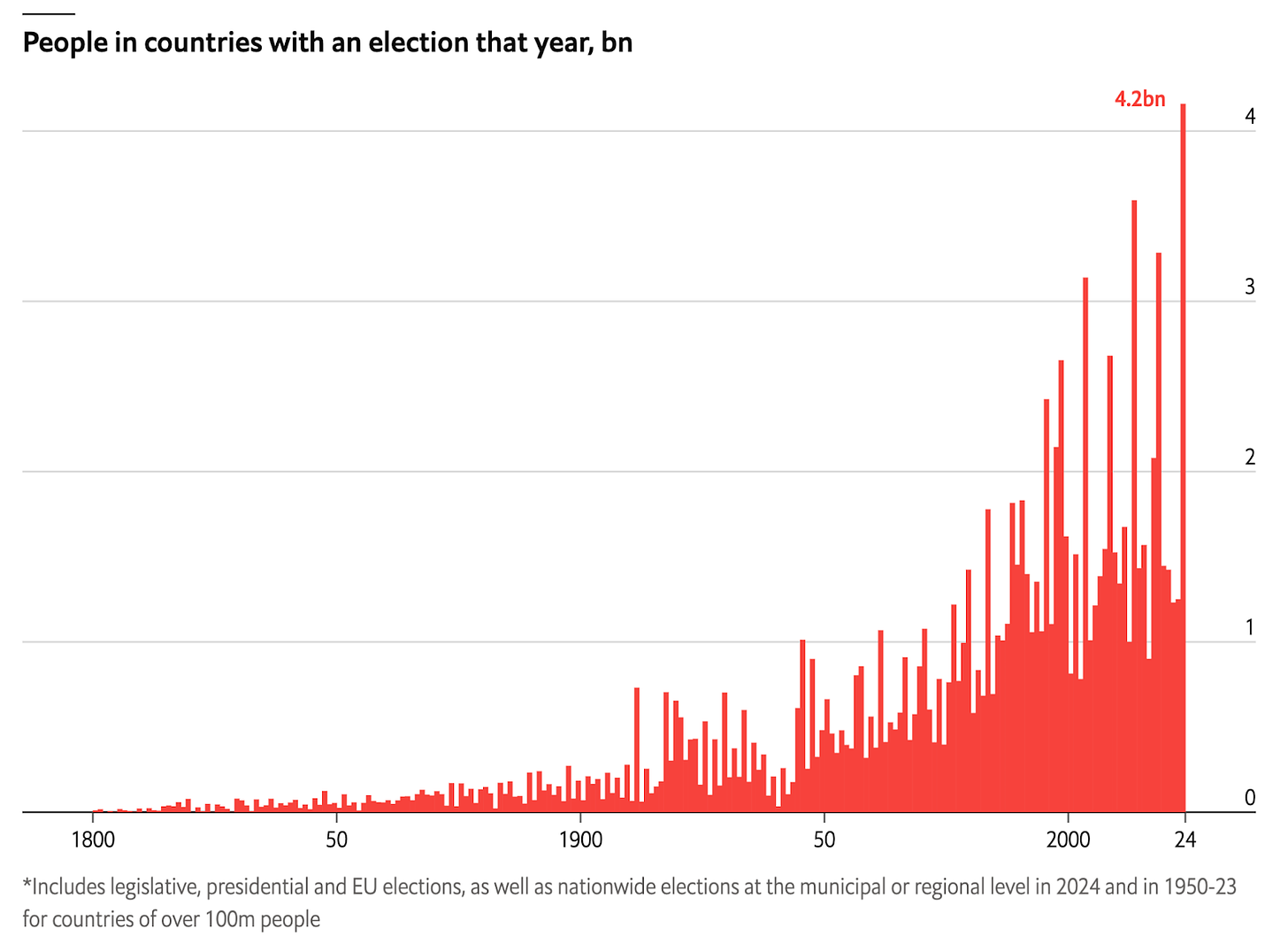
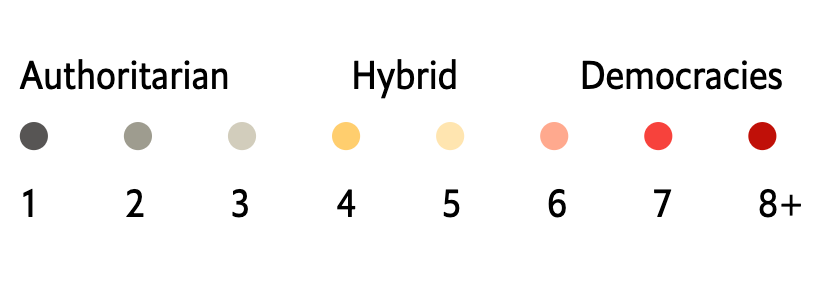
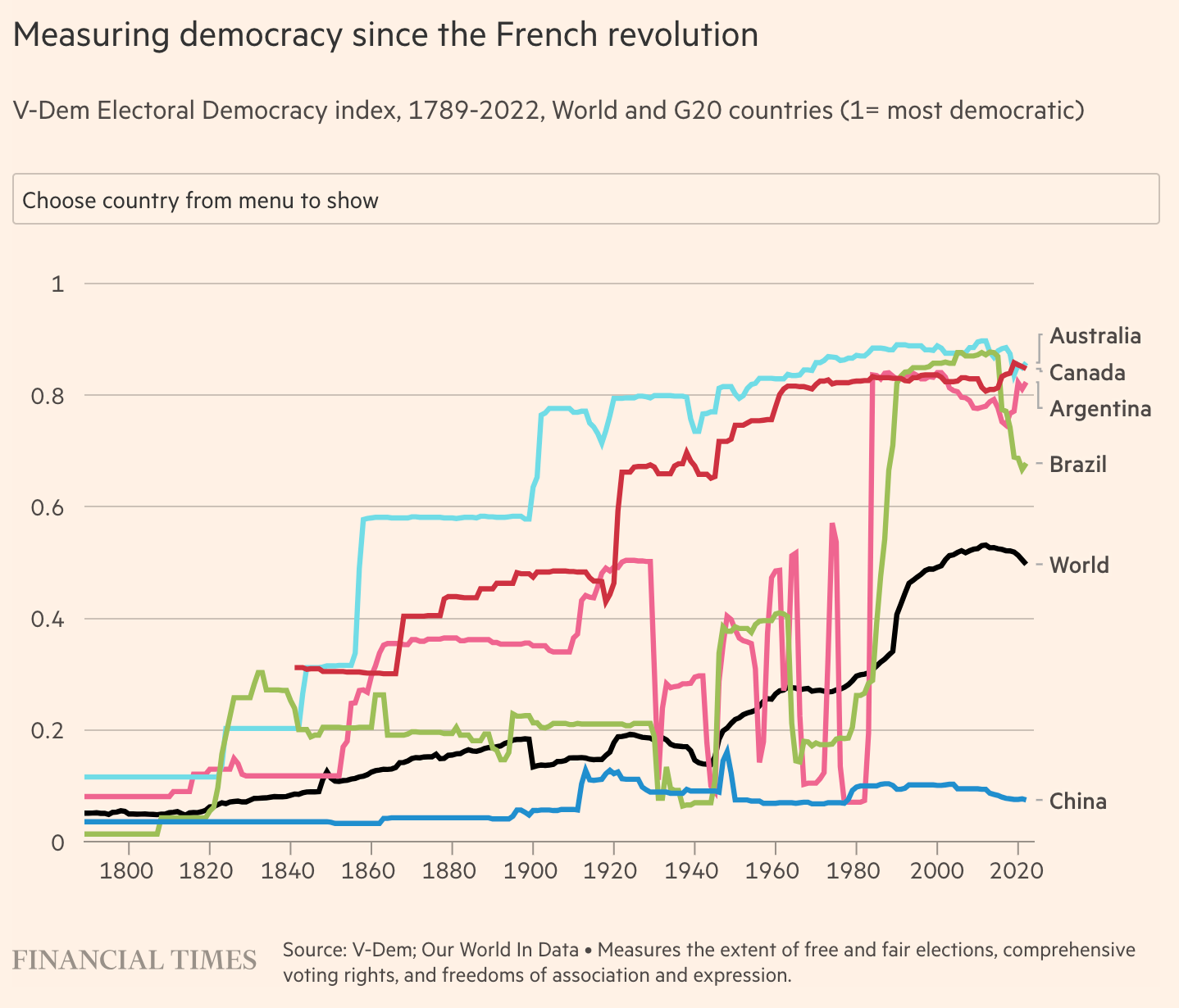
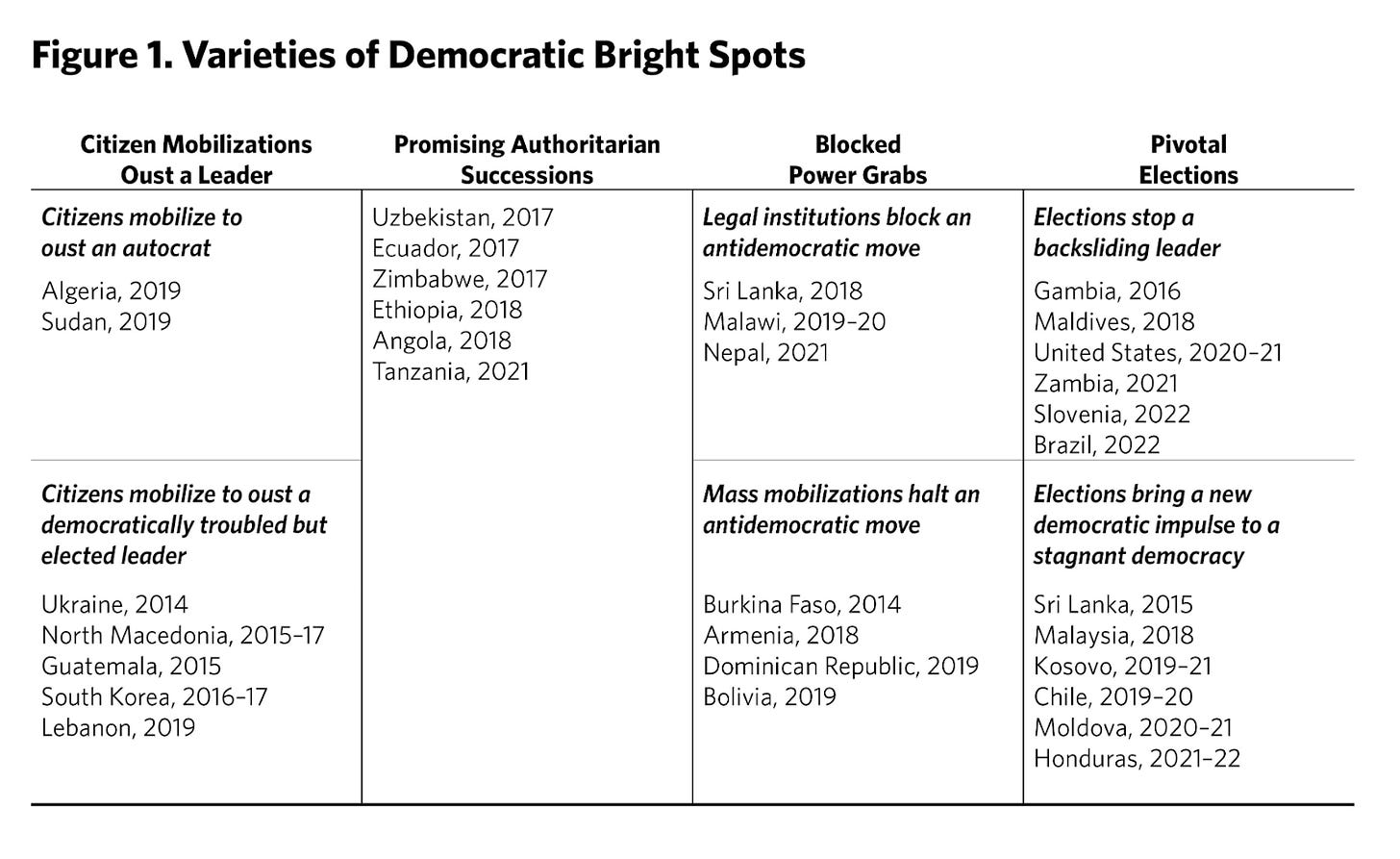









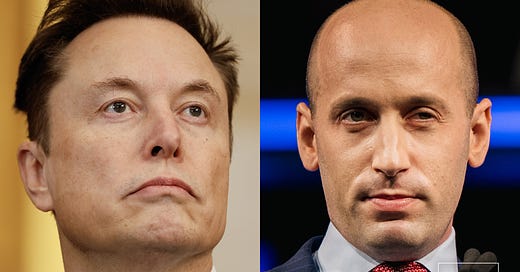

The Loyal Team . . .
Good Grief! The Don doesn't have Immunity . .
can't Bump Off his rivals with impunity. ..
Clearly if That holds . .The Maga Fight
Back! Movement folds .. and Clearly we're in for
The Replacements! will Over run us .. Blood
Poisoning .. Lunacy . ..
Players High Court . . .# Will See About That
Speaking from the UK, I'm afraid that to describe our upcoming Labour government as "left-of-centre" is just false. They're not even right of centre; they're just right wing now.
Starmer's first act as party leader - within 24 hours - was to throw all of campaign promises of left-wing policies out the window. His campaign for Prime Minister has consisted entirely of promising to be more right wing than the Conservatives, openly repudiating every fiscal or economic policy even a hair to the left of open neoliberal disaster capitalism.
He isn't popular because he's left wing, but because he went far enough to the right to win over the right wing extremists - not in the population, but in the British press.